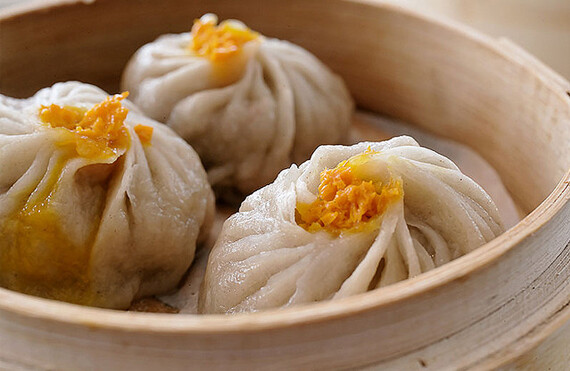Chinese president Hu Jintao's visit to Japan last week was his first foreign trip since March's violent protests in Tibet. It was also the first visit to Japan by a Chinese president in a decade. Upon his arrival in Tokyo, Mr. Hu told reporters he hoped his visit would enhance friendship between these historic rivals.
James Farrer spoke with Japanese political scientist Koichi Nakano about the significance of this symbolic visit.
Is a warming up to China going to help the Liberal Democratic Party's (LDP) domestic image?
The Japanese business leaders loved (former prime minister) Koizumi's iconoclast reform ambitions, but his handling of Japan's relations with China was nothing short of disastrous and no one in the business community wants a return to that ice age. Both the LDP and Fukuda personally have to show that they can deal with China at a time a lot of people are beginning to think that the DPJ (Democratic Party of Japan) may be just fine as an alternative to the LDP. The task ahead for Fukuda is actually quite complex and difficult. He needs to continue to work on the rebuilding of the bilateral trust that was brutally destroyed by Koizumi's repeated visits to the Yasukuni Shrine, but a simple warming up would not do either. There are a number of outstanding issues between the two countries, and Fukuda needs to show that he can also be a tough negotiator.
Will this visit accomplish anything in the way of strengthening Japanese ties with China? What are the implications for U.S.-Japanese relations?
The political ties between the two countries had been so severely damaged in the last several years that it would take many more rounds of good-will exchanges before we can speak of a strong bilateral relation. Japan and China need each other, but the mistrust remains significant both at the elite and the popular levels. In contrast, Japan has been unusually pro-U.S. both at the elite and mass levels, even in recent years as anti-U.S. feelings grew in other parts of the world.
What does the "frozen gyoza" incident represent for the Japanese public? [Ed. Note: Several people were sickened in January after eating frozen gyoza, or dumplings, imported into Japan from China.]
The incident is very symbolic and significant for the Japanese public, as you say. The frozen gyoza represents how thoroughly Japan is already "contaminated" by China. Japan is heavily reliant on China for food, goods, workforce, and market, but the reliance may turn out to be "poisonous." Most Japanese subscribe to the myth (and it is a myth) that home-grown food is safe, whereas foreign imports are dubious if not downright dangerous. For example, U.S. beef. Food items that come from China are even "worse" since they are not only suspicious but also indispensable (whereas beef steaks aren't).
Does the Japanese public have a strong reaction to the Tibet protest issue? I sense a rather muted response.
The Japanese response to the Tibet issue is very much muted as you say. It is a sad comment on both the society and politics of Japan, but human rights issues (especially those that concern foreigners) rarely ever get people agitated. Except for a tiny minority of human rights activists, the only people who are making any noise over the issue are anti-China right-wingers who somehow think what Japan did in China, Korea, Taiwan etc. bears no resemblance to what China has been doing in Tibet—thereby further alienating those who are concerned but do not see the matter in a simple black or white manner. At the same time, the media and the general public alike share a very naive belief that sport events can and should be "apolitical." Fukuda may refuse to declare whether or not he will be attending the opening ceremonies at this point, but few would look at that as a sign of genuine concern for the Tibetan monks rather than an attempt to use it as a bargaining chip vis à vis China to gain advantage over other, more pressing matters such as natural gas in the East China sea.
What do you in general think of Chinese politicians bearing pandas? Is there a broader significance to the giving of pandas? Can a Chinese politician still pull a panda out of his hat?
I hope that the old panda in the Ueno zoo died a natural death, but the timing was "perfect" for the leaders of the two countries who wanted some kind of achievement out of the summit meeting but could ill afford to reach an easy compromise on outstanding issues, considering their respective domestic constituencies. The return of the "panda diplomacy" brings back old memories of better times for Japan ("Showa retro") and for the bilateral relations—when the political leaders in both countries were more unambiguously committed to the improvement of the relations, and were also forceful enough to sway the popular opinion their way. Those were simpler times. Today the "panda card" may affect the views of those who are nostalgic for the days when hundreds of Japanese lined up in front of the cage to take a glimpse of the panda. There is even a colloquial expression in Japanese you may know "hito yose panda" (crowd-drawing panda). There are many other attractions in the zoo now, and pandas are no longer the unanimous favorite of children that they used to be.
![]() This article is licensed under a Creative Commons License. Please read our usage policy.
This article is licensed under a Creative Commons License. Please read our usage policy.





